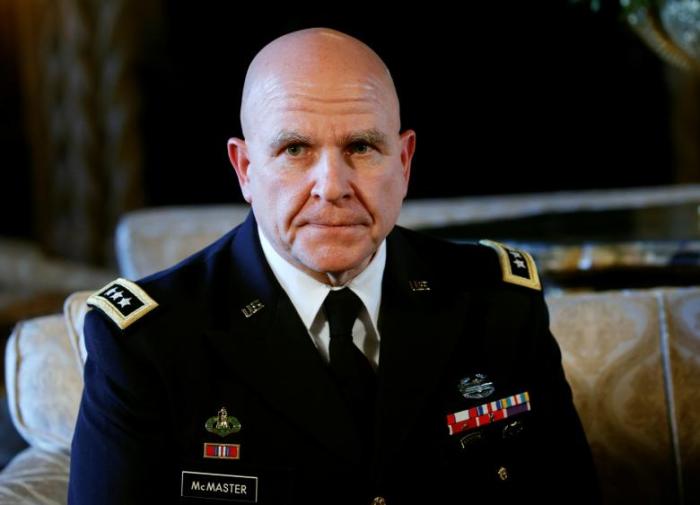4 Things to Know About Trump's National Security Advisor HR McMaster

President Donald Trump has named a new national security advisor to replace Gen. Michael Flynn, who was forced to resign last week for misleading Vice President Mike Pence about the nature of his conversations with the Russian ambassador.
Lt. Gen. Herbert Raymond "H.R." McMaster is now filling the important role. He will not have to undergo Senate confirmation as the job is not a Cabinet-level post.
Here are four things you should know about McMaster.
1. He has a long academic and military resume.
According to his bio posted on Stanford University's Hoover Institution website, where he was a visiting national security affairs fellow from 2002 to 2003, McMaster "assumed duties as the Director, Army Capabilities Integration Center and Deputy Commanding General, Futures, US Army Training and Doctrine Command on 15 July 2014. Prior to his arrival at Fort Eustis he served as Commanding General, Maneuver Center of Excellence and Fort Benning from June 2012 to July 2014. Previously he served as Commander, Combined Joint Inter-Agency Task Force Shafafiyat (Transparency) in Kabul, Afghanistan. He was commissioned as an officer in the United States Army upon graduation from the United States Military Academy in 1984."
McMaster is a graduate of the United States Military Academy and has a Master's degree and Ph.D. in military history from the University of North Carolina at Chapel Hill.
He is the first active duty military officer to hold this post since Colin Powell. He was also once a special assistant to Gen. David Petraeus during the troop surge in Iraq in 2007.
2. He wrote a book criticizing U.S. involvement in the Vietnam War.
In 1998, McMaster published Dereliction Of Duty: Johnson, McNamara, the Joint Chiefs of Staff, and the Lies That Led to Vietnam, which analyzes how and why the U.S. ended up intervening in an ultimately unsuccessful war in Southeast Asia.
The book, based on "released transcripts and personal accounts of crucial meetings, confrontations and decisions," "is the only book that fully re-creates what happened and why" and "pinpoints the policies and decisions that got the United States into the morass and reveals who made these decisions and the motives behind them, disproving the published theories of other historians and excuses of the participants," according to its description on Amazon.
3. He has previously criticized the planning of the wars in Iraq and Afghanistan.
As noted by the Daily Wire Monday, McMaster once wrote in Survival magazine that
in Iraq and Afghanistan "gaps between prior visions of future warfare and the nature of the eventual wars themselves complicated efforts to adapt strategy over time."
"Minimalist, linear plans — in place at the outset of both wars — were disconnected from the ambition of broader policy objectives and the complexity of the operating environment. Indeed, recent war plans have, at times, been essentially narcissistic, failing to account for interactions with determined enemies and other complicating variables," he said.
4. He is held in high esteem by those who have worked with him.
Writing Monday at National Review, David French called McMaster the "Neil Gorsuch of generals," a reference to Trump's choice for the Supreme Court whom he also regards as excellent.
McMaster is the former commander of his old unit, and although French himself never served under him, many he knew did, including some who served during the Battle of Tal Afar in 2005, "and almost to a man they loved him," French wrote.
Likewise, sitting congressmen and senators are heaping praise on Trump's pick.
Chairman of the House Select Committee on Intelligence Rep. Devin Nunes of California called McMaster "a fine addition" to the president's national security team and highlighted McMaster's "history of questioning the status quo and infusing fresh thinking and new approaches into military affairs," according to CNN.
Arizona Senator John McCain, who has been a vocal Republican critic of the president, said in a statement: "I give President Trump great credit for this decision, as well as his national security cabinet choices. I could not imagine a better, more capable national security team than the one we have right now."





























